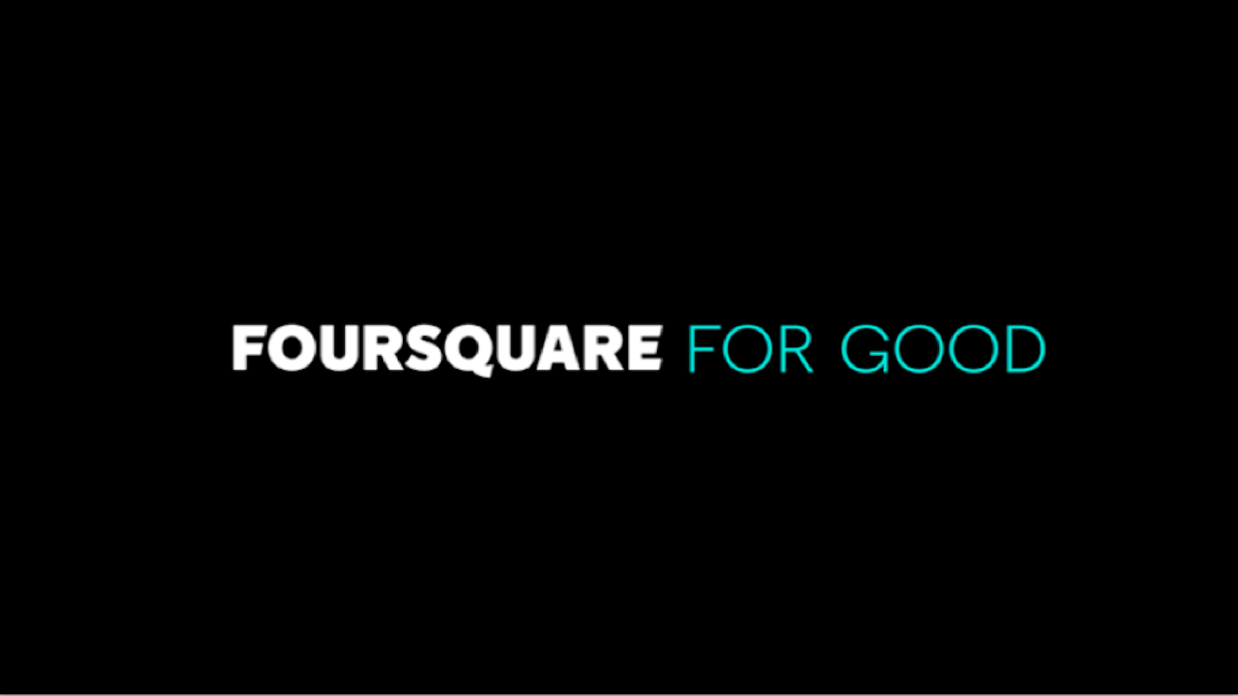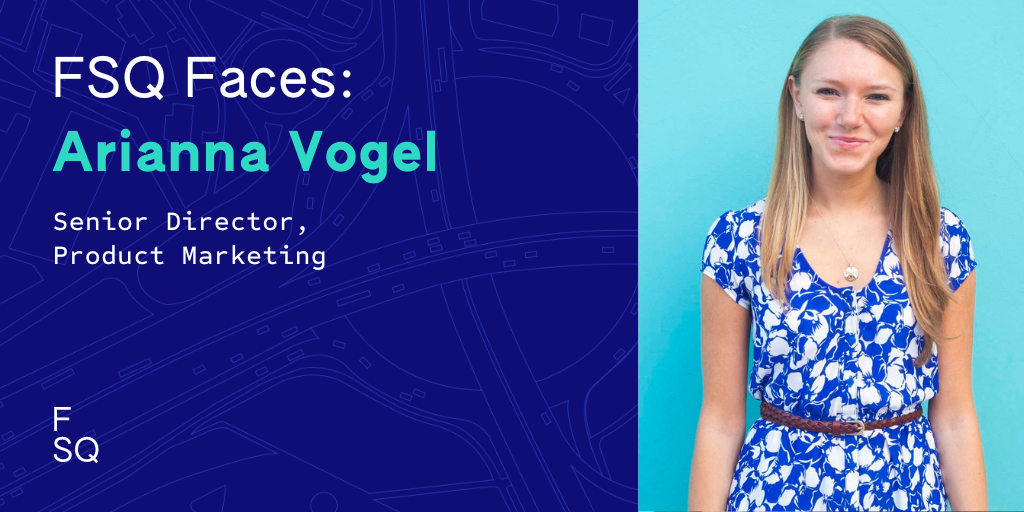When we launched the Foursquare for Good program in 2018, we had a simple yet ambitious mission—partner with academics, non-profits, policy makers and data scientists to make the real world a better, smarter, safer and more inclusive place through the power of location technology.
At Foursquare, we think about location every single day, and we know that location technology has the potential to truly change and enhance the way that people experience the real world. We see it in the apps that we create, to services powered by our technology that help consumers find hidden gems, save with coupons at retailers they arrive at, be aware of pollen or smog alerts nearby, and help the blind and visually impaired navigate the world around them (just to name a few).
Foursquare’s technology has been selected by more than 150,000 developers, including Samsung, Apple, AccuWeather, Microsoft, and TripAdvisor to power location-aware experiences, but we have always known there were countless ways to leverage this understanding of place to make urban planning smarter, improve public transportation, make better real estate decisions, and make cities easier to use.
That’s why this year we’re pleased to announce that Foursquare partnered with the Netmob Conference (which focuses on the scientific analysis of mobile phone datasets), on the Future Cities Challenge—a call to researchers and academics to use a specific global Foursquare dataset to solve complex urban issues in different cities around the world.
The winning entrants were announced and presented this week at the Netmob conference in Oxford, UK, split into two categories based on common themes related to urban innovation: Urban Phenomena and Systems, and Future Cities for Good.
The Foursquare dataset we provided to Netmob for the Future Cities Challenge included two years of aggregate transition data (e.g. on weekends in December 2018, there are 2,000 transitions from venue A to venue B), broken out by the day of the week and time of day (it was all anonymized, and stripped of any personally identifying information). Participants analyzed mobility patterns and built models to understand how people move through urban centers, as well as outline solutions for improving life and mobility in 10 international cities (New York, Los Angeles, Chicago, Istanbul, Singapore, Tokyo, Jakarta, Seoul, Paris, and London).
Some of our favorite winning submissions explored topics including how venue popularity impacts London property prices, how to use a metaheuristic optimization approach to improve traffic flow in Tokyo, a multi-objective approach for optimal retail store placement, and an intelligent tree-planning approach in New York City, just to name a few (you can read all 11 of the winning submissions below).
Here is the complete list of winners:
Urban Phenomena and Systems:
Disentangling activity-aware human flows reveals the hidden functional organization of urban systems – Riccardo Gallotti, Giulia Bertagnolli and Manlio De Domenico
hood2vec: Identifying Similar Urban Areas Using Mobility Networks – Xin Liu, Konstantinos Pelechrinis and Alexandros Labrinidis
Mining behavioral constraints in urban mobility sequences of Tokyo – Galina Deeva and María Óskarsdóttir
Using Foursquare data to reveal spatial and temporal patterns in London – Maarten Vanhoof, Antonia Godoy-Lorite, Roberto Murcio, Iacopo Iacopini, Natalia Zdanowska, Juste Raimbault, Richard Milton, Elsa Arcaute and Mike Batty
A geographic data science framework for the functional and contextual Analysis of Human Dynamics within Global Cities – Alex Singleton, Daniel Arribas-Bel, Sam Comber, Alessia Calafiore and Greggory Palmer
Future Cities for Good:
An intelligent tree planning approach using location-based social networks data – Jan van Staalduinen, Jaco Tetteroo, Daniela Gawehns and Mitra Baratchi
Love of food: Do eateries drive London property prices – Matthias Qian, Charles Rahal and Jan Calliess
Metaheuristic macro scale traffic flow optimization from urban movement data – Laurens Arp, Dyon van Vreumingen, Daniela Gawehns and Mitra Baratchi
PolisNet: Designing future cities with deep neural networks – Gianni Barlacchi, Marco De Nadai, Yahui Liu, Bruno Lepri and Luca Pappalardo
A multi-objective approach for optimal store placement – Jeroen Rook, Brent Verpaalen, Daniela Gawehns and Mitra Baratchi
Crime Rate Prediction with Region Risk and Movement Patterns – Shakila Khan Rumi, Phillip Luong and Flora Salim
These proposals have implications far beyond the Future Cities Challenge competition. In addition to the possibility that these exciting discoveries and insights will be implemented for innovation for urban planning around they globe, the very real excitement from Netmob and other academics around location data fuels us to continue towards our vision, where consumers and companies engage more deeply with the real world through location technology. Partnerships like this one will continue to be an important part of the work we do at Foursquare.
Want to do some good? Visit us at www.Foursquare.com/for-good or email ForGood@foursquare.com. The 2019 Foursquare For Good competition launches this fall.



